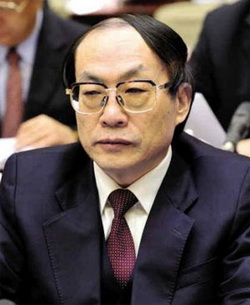管理员
 Earlier this month, the Communist Party's anti-corruption watchdog claimed its first major scalp for 2011 - Liu Zhijun, the country's Railway Minister.
Earlier this month, the Communist Party's anti-corruption watchdog claimed its first major scalp for 2011 - Liu Zhijun, the country's Railway Minister.
Liu is the most senior official to come under investigation in years and the first minister from a central government department to be stood down since Qiu Xiaohua was removed from his position as the head of China's statistics bureau in 2006.
Local media reports suggest that Liu was bribed by business interests who wanted help in winning lucrative contracts related to construction of the country's rapidly expanding high-speed rail network.
Though it's conceivable that the investigation into the railway minister has more to do with political jockeying ahead of next years 18th Party Congress, it's also possible that it's an indication that the party's efforts to rein in systemic corruption might just be starting to pay off.
The Long View
As detailed in a 16,000-character white paper on corruption and clean government released by the party and the central government in late December last year, the Communist Party is eschewing any radical new steps and taking a more gradualist approach to to the task of minimizing official corruption.
In keeping with the Party's long-standing opposition to the formation of any organization that might be free of its control, they have decided not to establish an independent corruption body similar to the one that exists in Hong Kong and other parts of the world.
The Party has also decided not to risk public ire by pursuing, as some have urged, a "Singapore Model" that would involve dramatically increasing the salaries of public servants.
According to the White Paper, China's leaders plan to slowly increase oversight and supervision of senior officials and at the same time gradually open up the opaque workings of party organs and government ministries.
A series of new party and government regulations were introduced last year which clarified what was expected of party members and exposed them to greater scrutiny. They included the release of a code of ethics for party members in February and a set of regulations that required senior officials to report details about assets and investments held by their family members to the government in July.
In institutional developments, a National Corruption Prevention Bureau tasked with coordinating anti-graft efforts across party offices and government departments was established in 2007.
In April 2008, the bureau led a joint party-government campaign to crack down on unnecessary overseas travel by officials and in August that year new regulations restricting travel were announced.
There has also been a gradual strengthening of the investigative powers and also the quality of reporting of existing bodies like the National Audit Office.
In 2010, auditors were given the authority to carry out investigations into officials at a ministerial level.
There is no doubt that corruption is one of the critical issues facing contemporary China, it influences everything from the distribution of wealth and opportunity to the legitimacy of the government and the Communist Party.
Although the party's anti-graft body conducts meetings and produces reports steeped in the impenetrable language of arch-communism, it's possible that behind the seemingly rigid political theater, some incremental progress might be being made after all.
